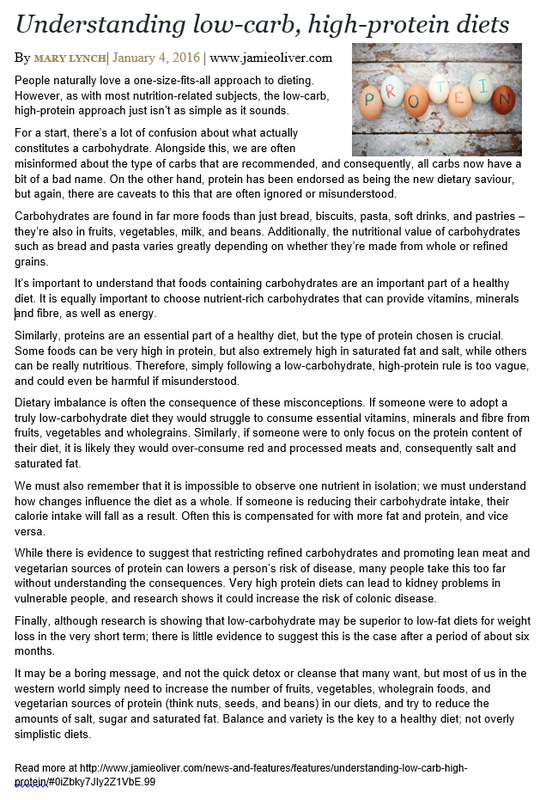|
Today, Europe's definitive chronic disease is type-2 diabetes. In the UK alone, more than 3 1/2 million people now have the disease with 700 people per day entering the fold. Type-2 diabetes is the leading cause of blindness in people of working age and leads to more than 100 amputations a week. It is strongly associated with obesity and in some UK towns, 3 out of 4 people are obese. Children are also in the firing line. In 1957, fewer than one in ten 11-year-olds were fat; by 2012, more than a quarter of a typical class are overweight or obese.
With so many people suffering the effects of today's junk-food driven lifestyles (be they obesity, type-2 diabetes or others), solid nutritional guidance is in short supply. Websites such as www.dietdoctor.com do an excellent job but we urgently need the mainstream to catch up. Sadly, traditionally taught nutritionists are still plying their trade based on a poorly informed curriculum, steeped in largely unproven epidemiological evidence from the past. That's why the low-carb advice of Professor Noakes has kicked up such a storm with his 'baby-food trial' in South Africa. Jamie Oliver is closely followed by thousands, particularly in the UK. He has done so much to prove his credentials when it comes to talking sense about school meals and recommending that we ditch junk food, but the nutritional advice he receives is incorrect and misleading. Nowhere on his website does Jamie or his team of advisers make reference to a low-carb, high-fat approach to eating, even though it is now becoming accepted as the best anti-type-2 diabetes approach to eating. Dr Ludwig of Harvard's T.H Chan School of Public Health says: "The fastest way to stabilize blood glucose and lower insulin levels is to reduce carbohydrate." Nutritionists and chefs take note. The closest you get on the subject from Jamie's nutritional advisers is to be found in this low-carb, high-protein advice (see below) which is slanted and at best, misleading. The author takes a commonly used approach to writing such an article, using cheap rhetorical techniques to try and appeal to her audience. It goes something like this: 1/ Make things sound complicated. 2/Add confusion (but don’t try and remove it). 3/ Add a sweeping statement (straw dog) which is not relevant. 4/ Bring in the much-propagated whole grain argument. 5/ Add a sweeping (incorrect) statement that eating carbs is important and adds nutritional value. 6/ Then imply that saturated fat is bad and associate it with salt. 8/ Add further generalisations. 9/ Bring in total misinformation about the effects of eating low-carb. (We’re talking 'low-carb' not 'no-carb' and even if we were 'no-carb', the statement is almost certainly incorrect). 10/ Associate high-protein with eating red meat, sat fat and salt again. 11/ State the obvious: Lowering carbs means eating more fat or protein – well, Yes, of course. 12/ Emphasise the supposed dangers of a high protein diet. 13/ Cherry-pick your research quote, implying that low-carb has no long-term benefits. (Making no reference to type-2 diabetes) 14/ Imply that most of us want a ‘quick detox or cleanse’ – creating a doubtful strawman again. 15/ Shoot down the self-made strawman, singing the virtues of wholegrains while grouping ‘salt, sugar & saturated fat’ again together as the baddies. 16/ Sing the praises of balance and variety vs ‘overly simplistic diets’, even though the author’s hypothesis of a simplistic diet is of her own making. The lay-reader can be left with only two messages:
1 Comment
|
Sammy Pepys"FAT IS OUR FRIEND" ADVOCATES A DIET: Sammy Pepys was the pseudonym used by James Capon when writing this book. He is not a doctor or a nutritionist but has studied nutrition and holds an MPH from Edinburgh University. Over the years, he has become increasingly suspicious of today's conventional wisdom about diet and health. When it comes to what we eat, he has helped many learn to eat more healthily.
Archives
May 2020
CategoriesArchive
|
||||||||||||||||||||||||
| 1_blog_march_2014.docx | |
| File Size: | 546 kb |
| File Type: | docx |
| 2_blog_april_2014.docx | |
| File Size: | 245 kb |
| File Type: | docx |
| 3_blog_may_2014.docx | |
| File Size: | 642 kb |
| File Type: | docx |
| 4_blog_june_2014.docx | |
| File Size: | 426 kb |
| File Type: | docx |

 RSS Feed
RSS Feed